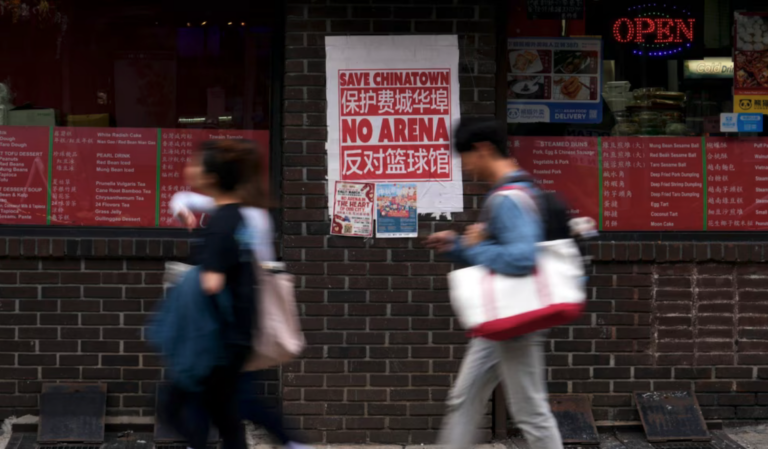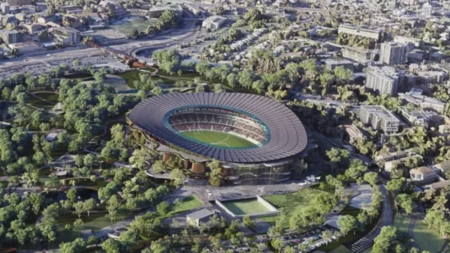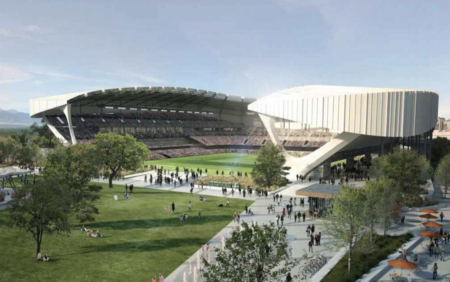Activists within the Chinatown neighborhood of Philadelphia, Pennsylvania, are protesting at the possibility of a new stadium being constructed there for the NBA’s 76ers.
Market East, a once-bustling stretch of historic Market Street, has withered over the last half-century amid a series of cultural shifts: the growth of suburban shopping malls in the 1960s and ’70s, the financial crises that crippled U.S. cities in the 1980s, and, more recently, the twin blows of online shopping and the pandemic.
And while much of Philadelphia is thriving as more young people settle downtown, Market East has resisted renewal efforts.
Enter the 76ers, owned by Harris Blitzer Sports & Entertainment, who want to shed their Wells Fargo Center lease with Comcast Spectacor and move from the city’s South Philadelphia sports complex to their own facility.
The partners, who also own the NHL’s New Jersey Devils and have a controlling interest in the NFL’s Washington Commanders, say the project will be privately financed and bring thousands of jobs and more than $2b in economic growth to downtown. They also hope to build an adjacent $250 million apartment tower.
“I wholeheartedly believe this is the right deal for the people of Philadelphia,” Mayor Cherelle Parker said in announcing her support in September, while pledging to protect what she called “the best Chinatown in the United States.” The plan now moves to city council for debate this fall. Team owners say they need the council’s approval for 76 Place by year’s end so they can move into their new home by 2031.
“I think the arena is a good thing,” said Dante Sisofo, 28, who lives nearby. “I could see a lot of families gathering and getting a nice bowl of Vietnamese pho — my favorite dish — and then heading to the game.”
Parker shares his optimism and has tried to address concerns by noting the $50 million in local benefits the team has promised, a sum that includes a $3 million loan fund for Chinatown businesses.
But others wonder if sports fans would really patronize mom and pop stores. Arenas, they say, are designed to keep fans inside, spending their money on increasingly upscale dining and entertainment.
“The Sixers’ owners, they don’t make money by people going to the quaint little sports bar across the street. They make money by having people buy those $14 beers inside the stadium,” Matheson said.
The owners have pledged not to ask the city for any construction funding, although they are free to seek state and federal funds. Instead of property taxes, they would pay about $6 million in annual Payments in Lieu of Taxes. Over the 30-year agreement, the potential savings to the team — and loss to the city and its cash-strapped schools — could be tens of millions of dollars or more, by some economists’ measure.





